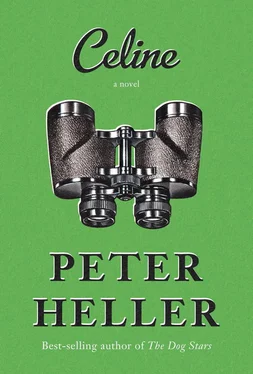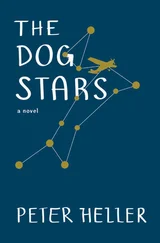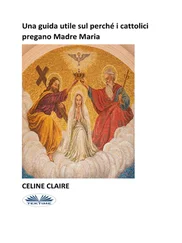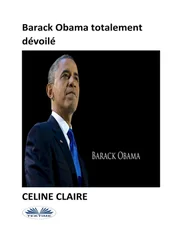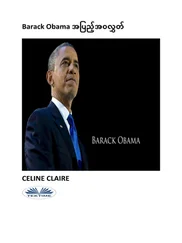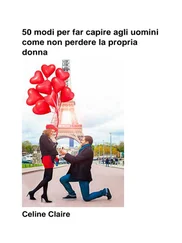She tumbled down the stairs, clapped the screen door, and tore back down to the beach. The wind was up. Gustav, the sailing instructor, had gone back to Hay Harbor. The tiny catboat they had just used was pulled up on the beach and tied with cotton rope to a heavy driftwood log. Celine untied it and pushed the bow around, shoving it over the sand with all her strength and digging in with scrabbling feet like a rugby player in a scrum, and when it was pointed toward the water she went to the rope and put it over her shoulder and hauled it to the wet sand. The westerly wind was stiff and it blew her hair across her face. The green water of the shallows yielded quickly to serious dark blue, deep water, and out there the sound was choppy and the swell met the wind and raised whitecaps. She waited for a bigger wave to float the keelless boat and shoved again; then one more time on the next wave and the little boat was floating.
She stood waist-deep, back to the small breakers, and was knocked by the waves as she yanked loose the ties that cinched the folded sail to the wooden boom, and she gave a great final push the way Gustav had showed her and leapt aboard the liberated dinghy. She picked up the varnished centerboard in both hands and knocked it down snug in its slot. The boat was rocking dangerously just at the edge of the little break and swinging sideways. She needed headway right now, so she made sure the sheet was free and hoisted the halyard and pushed away on the tiller with her hip, and it was just enough pressure to force the bow back into the swell. With the two of them sailing she had not realized how many things there were to do at once to launch her little boat. She had always hoisted the sail with the big Dutchman’s help and the weight of it surprised her, as well as the sudden living flapping of the canvas as it rose to the breeze. The boat had become a powerful living animal and it frightened her.
But Celine was Celine. She had been working hard to learn to sail not just because she was drawn to open water and wildness and had always loved sea stories but because her father had promised to sail with her and she wanted badly to show him that she could skipper her own boat. The sail slapped and snapped violently, then fluttered as it rose, bellied an instant as the boom swung away, swung back, came taut and she cleated down the line fast like a pro and thought Sheet and tiller! and began stripping the slackline in fast while keeping the teak handle of the tiller away with her knee, and the sail caught and filled and the boom swung away and slammed hard against the sheet and the boat tipped up to starboard and lurched forward like a wild stallion released from a pen.
In reflex she leaned back out of the shallow cockpit to counter and snugged the sheet down fast in the slot of the keeper and reached blindly for the tiller. She caught it and was surprised again at the living pressure against her palm as she forced the bow into the oncoming sea and leaned back. And was surprised at the loud slapping of the hull bounding against the chop, and the crash and lunge of spray as she hit a whitecap. She was doused and didn’t care. Still, she held the dinghy close to the wind. She tugged the sheet from the keeper and gripped it in her left hand. The little boat flew and pounded into the quartering swell. She was more terrified and more thrilled than she had ever been in her life, and she was heading for the open black water of the sound.
Celine was far enough into the channel to make out Las Armas and Grayson’s dock and the line of other houses in their clearings on the low ridge, and see Simmons Point and beyond it the open Atlantic. She knew what she had to do to come about, to fall off the wind and slow and head back, but she couldn’t make herself go through the motions. She had clung to the mane of a runaway horse in Blois and it felt the same. Except she wanted this. Part of her did. To sail away from everything that had to do with her father leaving them. When the gust hit and threw the upwind gunwale to the sky and burned the sheet through her palm and launched her from the cockpit she cried his name.
So Celine knew what it was to be abandoned by a father. And to what lengths a child—even an adult child—might go to bring him back. After years of turning her great capacity for empathy toward Harry Watkins, she understood, too, the despair that might be visited on some fathers who had made the choice to leave.
North of Jackson Hole, the Toyota pickup jounced over a root and stopped. The campsite they chose was right on the shore of Jackson Lake. Dusk was moving over the water with a stillness that turned half the world to glass. The wall of mountains had gone to shadow as had the reflections at their feet. In the stillness the rings of rising trout appeared like raindrops. Slowly, in silence, the dark water tilted away from the remaining daylight. Celine stepped down from the truck and stretched and walked to the water, smelling its coldness and the scent of someone’s cooking fire. She saw an older man casting a bobber on the closest point and a younger man shaking a tent out of a stuff sack three campsites down. She thought that peace reigned in the world—might reign. But only where love had no ferocity. Where there was the love between mothers and fathers and children there would be no peace.
Pete came up behind her and put his hands on her shoulders and was wise enough not to say a word. Maybe it wasn’t wisdom: The thought of saying anything after arriving at camp after a long drive probably never occurred to him.
After a while Celine said, “It reminds me of Lake Como.”
“When you were proposed to by an earl? The year in college you went back to France?”
“He was a duke.”
“Hmm.”
“Wouldn’t it be nice to be simply retired?” she asked. “Like that couple there? And over there? We could come down to the water tomorrow morning and throw out a bobber and hook with a marshmallow on it and sit in a beach chair.”
“Hmm. I’m not sure they use marshmallows.”
“We could tell that young man who’s following us that the game is up, we’re not playing anymore, he can go home to his own family where there is probably a house with a little girl inside who misses him terribly.”
“That man there?”
“Yes that one. The one next to the pickup who is studiously unrolling his tent under that big pine.”

The second night in the camper was more peaceful than the first. They made a pot of Lapsang souchong and drank it slowly at the little table and flipped through the National Geographic s in the imperfect light from the little bulb on the wall. Celine turned the pages of a long feature on Chile shot by Lamont, and now she was struck by the sensitivity that had impressed Pete. The susceptibility to wonder was clearly not confined to impressions of his wife. There was one picture of a Chilean huaso in furry goatskin chaps and a flat-brimmed hat, riding a gray roan in the rain. He was riding in green woods along a whitewater river, and he had a chain saw tied behind the saddle and was holding an infant in one arm. Something about the ease of the scene, the rightness, the green hardwoods and the rushing river and the man and the horse, spoke to her like a poem. Maybe it was simply the attitude of the man: his bearing balanced to the rhythm of the horse’s gait; his hat tilted to the trail, to all the work to be done. But it was more than that: There was something wholly protective in his posture. No matter what happened, now or ever, he would cradle this child. Nothing could be more clear. Celine huffed out a breath, turned the page.
Читать дальше
